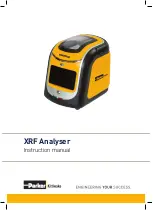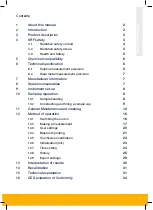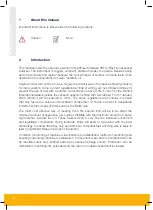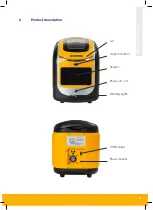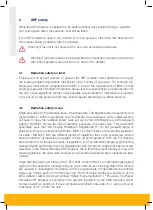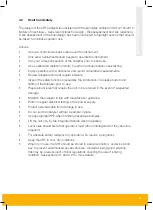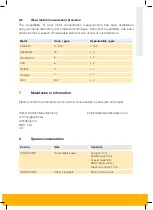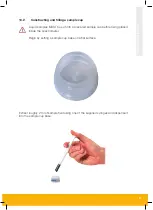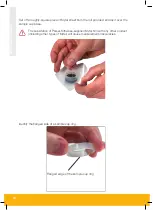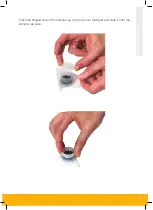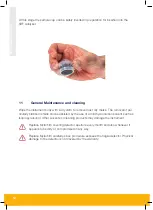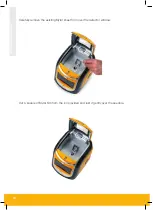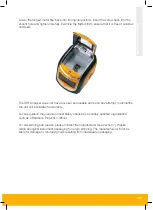
XRF Analyser Manual
4
4
XRF safety
While the XRF Analyser is designed to be usable without any special training or qualifica-
tion, appropriate safety precautions must still be taken.
If the XRF Analyser is used in any manner or for any purpose, other than that described in
this manual, safety protection may be impaired.
Warning! This unit is not approved for use in an explosive atmosphere.
Warning! This unit produces ionising radiation and must be operated in accordance
with local regulations (see Sections 4.1 and 4.2 for details).
4.1
Radiation safety on land
Employers who expect workers to operate the XRF Analyser must determine and apply
the ionising radiation regulations that apply in their country of operation. For example, UK
employers must ensure compliance with IRR17. One of the requirements of IRR17 is that
employers appoint a Radiation Protection Supervisor to provide advice on safe operation of
the unit. Local regulations will also likely stipulate requirements for maintenance programs
to be set up by the employer and may include regular servicing by qualified persons.
4.2
Radiation safety at sea
Ships are subject to the maritime laws of their flag state. The flag state has the authority and
responsibility to enforce regulations over its vessels. As an example, a UK-registered ship
will need to obey the radiation safety rules set out by the (UK) Maritime and Coastguard
Agency. MGN451 covers the risk of radiation exposure on board ships. This document
specifically says that “the Ionising Radiations Regulations 17, do not generally apply to
ships when they are outside Great Britain. MGN 197 (M+F) sets out the relevant legislation
for ships.” MGN197 lists five different pieces of legislation that, once considered, should
ensure maritime “compliance as applied to ship owners/operators” with the EU directive
96/29 Euratom. Of these five pieces of legislation, it is The Merchant Shipping and Fishing
Vessels (Health and Safety at Work) Regulations 1997 SI 1997 No 2962 that has particular
relevance to the Parker Kittiwake XRF Analyser. Given that ships must already comply with
these regulations, the extra work involved in incorporating radiation safety measures is fairly
minimal.
Ships also fall under port state control. Port state control (PSC) is an internationally agreed
regime for the inspection of foreign ships in ports other those of the flag state. PSC officers
are required to investigate compliance with the requirements of international conventions
written by bodies such as the IMO and ILO. Both of these bodies are sponsors of the
IAEA radiation safety document entitled “Safety Fundamentals SF-1”. However, the Parker
Kittiwake XRF Analyser is exempted from specific regulation by the IAEA because, under
normal operating conditions, it does not cause an ambient dose rate of > 1 µSv per hour at
a distance of 0.1 m from the unit.
Summary of Contents for XRF
Page 1: ...XRF Analyser Instruction manual...
Page 2: ...XRF Analyser Manual...
Page 37: ...XRF Analyser Manual 35...

